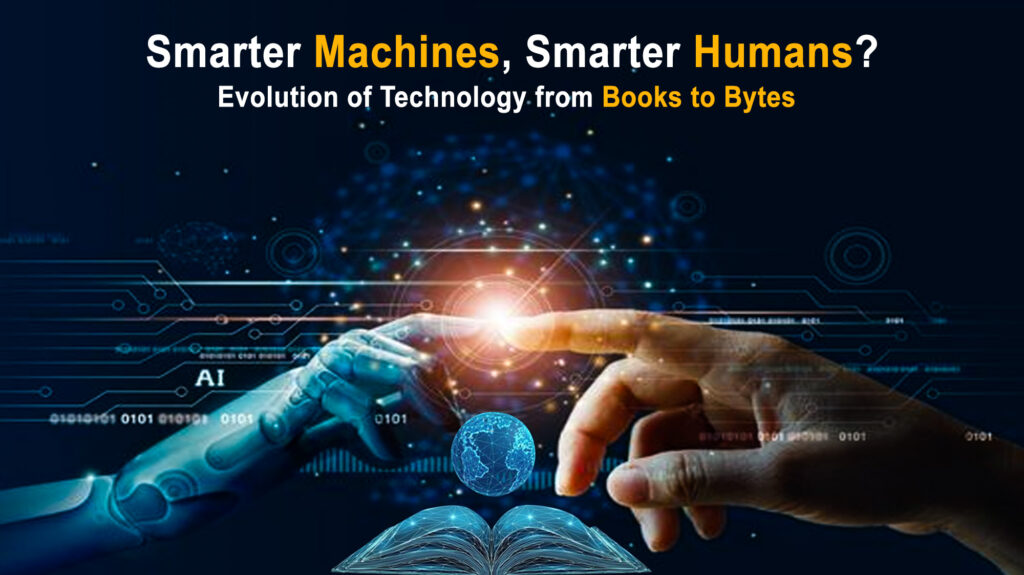
Smarter Machines, Smarter Humans? Evolution of Technology from Books to Bytes
In today’s rapidly evolving world, the great impact of the Evolution of technology is undeniable. It has transformed numerous industries, revolutionizing the way we live and learn. In education, digitization and AI-powered tools enhance learning. Telecommunications benefit from faster networks like 5G. The automotive sector advanced with self-driven cars. Healthcare using AR and AI-powered systems. Technology has impacted all sectors, reshaping our world.
The Education Sector
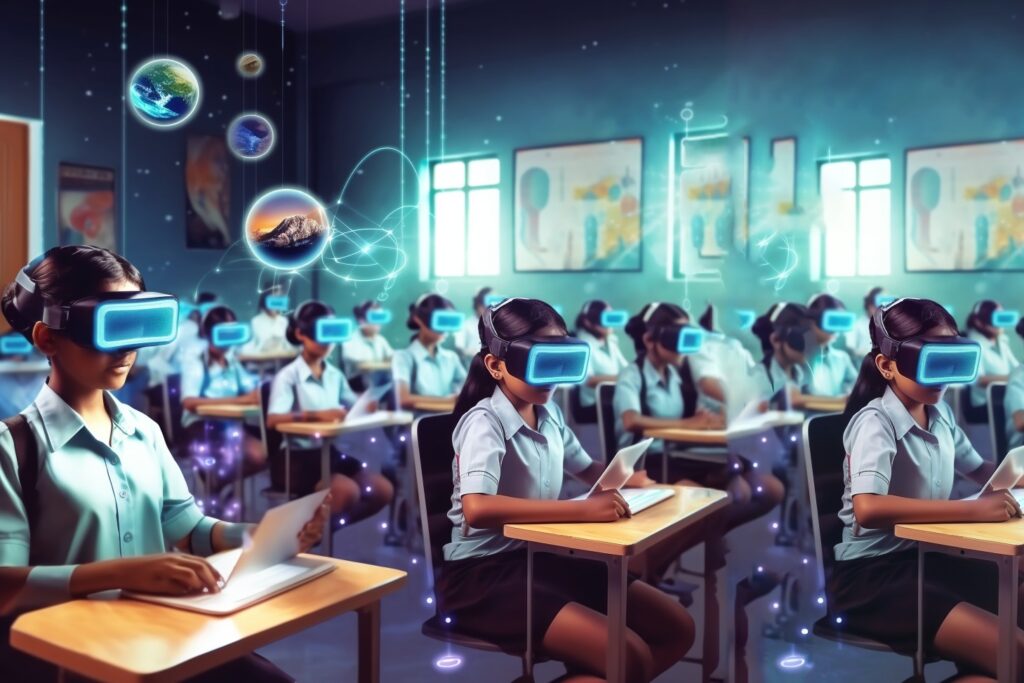
In the education sector, technology has initiated a new era of learning. Digitization and accessibility of information have democratized education, making knowledge readily available to learners of all backgrounds. Artificial Intelligence (AI) has paved the way for personalized learning experiences, tailoring educational content to individual students’ needs. Moreover, virtual reality (VR) and augmented reality (AR) have created immersive educational environments, enabling students to explore subjects in unprecedented ways.
Technology in education extends beyond the classroom. Online learning platforms, e-books, and educational apps offer flexible and accessible learning opportunities. Distance education and remote learning have become possible through video conferencing and online collaboration tools.
The benefits of technology in education are backed by research. Studies have shown that integrating technology into the classroom improves student outcomes, increases motivation, and enhances critical thinking skills. It also fosters collaboration among students and encourages creativity and problem-solving abilities.
The Telecommunication Industry

The telecommunication industry has witnessed remarkable advancements, transitioning from 2G to the era of 5G networks. This evolution has brought faster and more reliable connections, revolutionizing global communication. The potential of 5G technology extends beyond improved browsing speeds from less than 10 Kbps to now more than 330 Mbps; it has the power to transform industries, enabling real-time data transfer, supporting autonomous vehicles, and enhancing user experiences through seamless connectivity.
The potential impact of 5G technology is immense. It holds the key to transforming industries such as healthcare, logistics, entertainment, and more. In healthcare, for example, real-time remote patient monitoring can become a reality, enabling healthcare providers to monitor patients’ vital signs from a distance and respond promptly to emergencies. In the logistics industry, 5G can optimize supply chain management, enabling real-time tracking of goods, improving efficiency, and reducing costs.
The Automotive Industry

Technology has revolutionized the automotive industry, bringing self-driving cars from concept to reality. Tesla, a leading electric vehicle manufacturer, showcases the potential of this transformation. Their Autopilot system utilizes advanced sensors, cameras, and AI algorithms to enable autonomous driving.
Self-driven cars offer enhanced safety features, reduce traffic congestion, and contribute to environmental sustainability. They can analyze road conditions, respond to hazards, and significantly reduce accidents caused by human error. Moreover, these vehicles optimize traffic flow and offer energy-efficient transportation. Studies predict a significant reduction in accidents and saved commuting time with their adoption.
These cars can also contribute to addressing traffic congestion issues. Through advanced algorithms and data analysis, these vehicles can optimize traffic flow, reducing bottlenecks and improving overall efficiency. The implementation of self-driving car networks can potentially result in smoother traffic patterns, shorter travel times, and reduced emissions.
Data from various studies support the potential impact of self-driving cars. For instance, a study conducted by McKinsey & Company estimated that by 2030, self-driving cars could reduce traffic accidents by up to 90% and save approximately 30,000 lives each year in the United States alone.
The Healthcare Sector
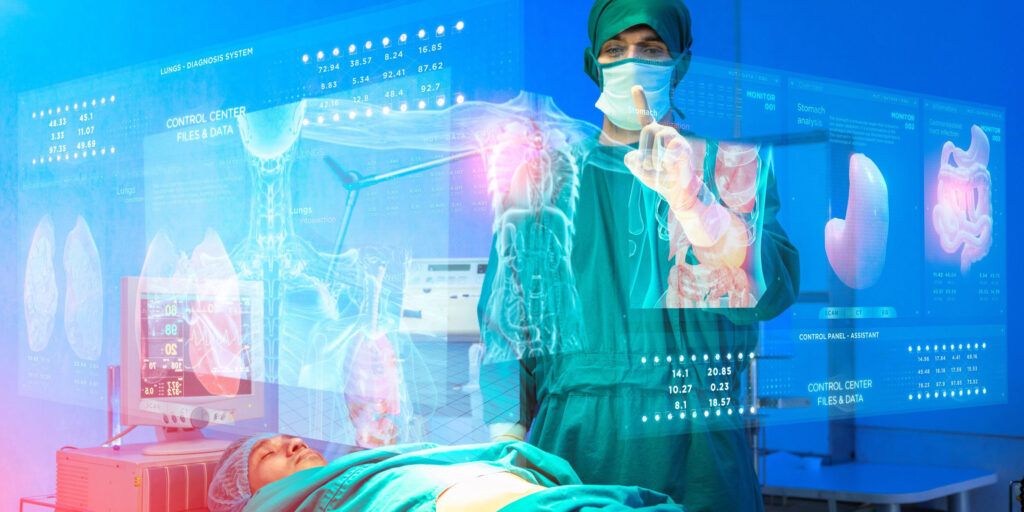
Technological advancements have propelled the healthcare sector to new heights. Through AR, surgeons can overlay digital information onto the patient’s anatomy, offering real-time guidance during complex surgeries. This technology allows for more precise and accurate surgical interventions, leading to better patient outcomes and reduced risks. AI-powered healthcare systems have improved the accuracy of diagnoses and treatments, enabling more efficient patient care. Additionally, remote patient monitoring and telemedicine advancements have expanded access to healthcare services, particularly in underserved areas.
Studies have demonstrated the effectiveness of AR in surgical training, reducing surgical errors, and improving patient safety. AI-powered systems have shown potential in accurately diagnosing various diseases, predicting treatment outcomes, and optimizing patient management.
The Tech Industry

The tech industry continues to be at the forefront of innovation. Artificial Intelligence (AI) and machine learning have paved the way for groundbreaking applications, ranging from voice assistants to autonomous systems. Natural Language Processing (NLP) and the advent of models like GPT-4 and Google Bard have propelled language understanding to new levels, transforming how we interact with technology. Furthermore, blockchain technology has revolutionized secure transactions and decentralized systems, offering transparency and trust in various domains.
The Media and Entertainment Industry
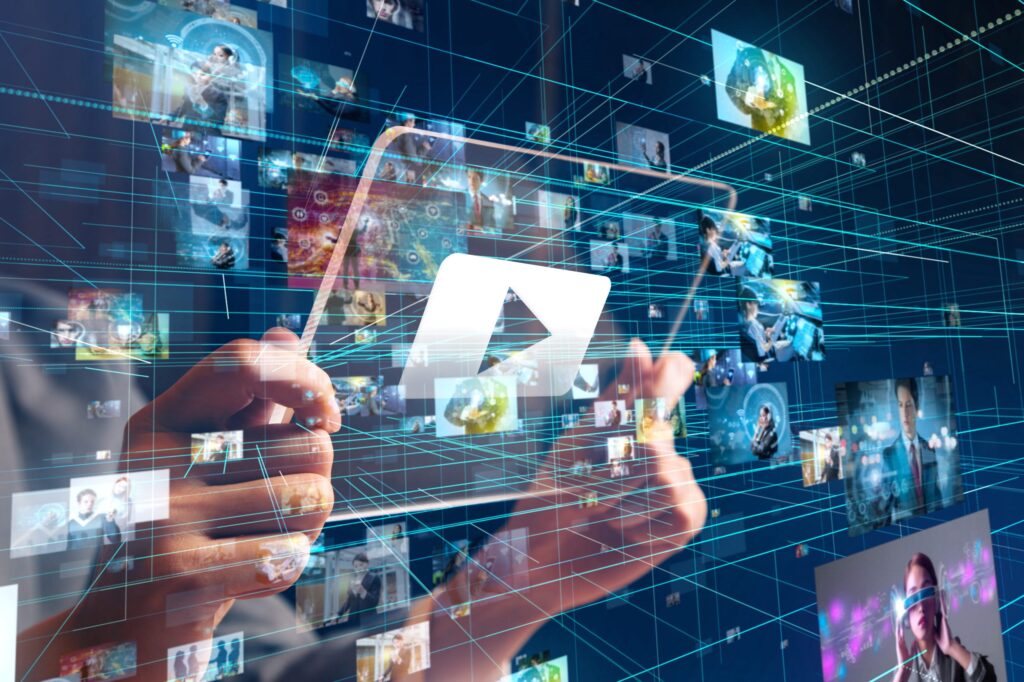
The entertainment and media industry has undergone a profound transformation due to technology. Streaming platforms have revolutionized content consumption, providing on-demand access to an extensive library of movies, TV shows, and music. Services like Netflix, Amazon Prime Video, and Spotify have transformed the world of entertainment, giving users the flexibility to choose what they want to watch or listen to at any time. Virtual reality experiences have elevated gaming and entertainment, immersing users in virtual worlds.
Data-driven content creation and personalized recommendations have become integral parts of the entertainment experience. With the help of algorithms and analytics, streaming platforms can analyze user preferences, viewing habits, and demographic information to curate personalized recommendations. This not only enhances user satisfaction but also introduces viewers to new content they might not have discovered otherwise.
The Energy and Environmental Sector

The impact of technology extends beyond industries; it permeates our daily lives and personal interactions. It has reshaped communication, enabling instant global connectivity and fostering virtual communities. The job market has undergone significant shifts, with digital skills becoming increasingly essential for success. Technology has democratized access to knowledge, empowering individuals to learn, grow, and collaborate on a global scale. However, the rapid advancement of technology also brings forth challenges and ethical considerations. Issues such as data privacy, security, and the digital divide must be addressed to ensure that technology benefits all members of society.
Technology's Influence on Society and Individuals
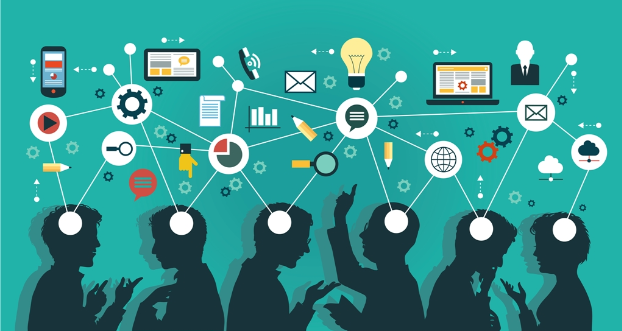
Technology plays a pivotal role in the pursuit of a sustainable future. Renewable energy technologies have made significant strides, enabling the generation of clean power from sources like solar and wind. Smart grids and energy management systems optimize energy distribution and consumption, fostering efficiency. Internet of Things (IoT) enabled devices to facilitate energy monitoring and environmental conservation, empowering individuals and organizations to make informed choices for a greener world.
Future Trends and Possibilities

Predicting the trajectory of technology is an exciting endeavor. Artificial Intelligence (AI) will continue to expand its reach, revolutionizing industries such as healthcare, finance, and manufacturing. The Internet of Things (IoT) will connect billions of devices, creating a network of interconnected systems that enhance our daily lives.
As we reflect on the evolution of technology, it becomes evident that smarter machines have indeed empowered smarter humans. From the digitization of education to the rise of 5G networks, from self-driving cars to augmented reality in surgery, and from AI advancements to blockchain innovation, technology has reshaped industries, society, and individual lives. It is vital for us to understand and adapt to these advancements because who doesn’t change with the world, gets changed.
As we embrace the possibilities of the future, we must also navigate the ethical considerations that arise, ensuring that technology serves humanity’s best interests. By leveraging the power of technology responsibly and ethically, we can create a future where humans and machines collaborate to build a better world.
Remember, technology is not a standalone entity; it is a tool that humans wield. It is our responsibility to shape its trajectory, ensuring that it aligns with our values and serves the greater good. Embrace the opportunities, embrace the possibilities, and together, let us navigate the evolving landscape of technology in the digital age.

